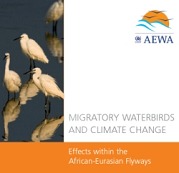UK NGO Climate Change Comments
Key Organisations
The following organisations agree that Climate Change is the most significant challenge that faces them in their various activities.
|
NATURAL ENGLAND |
Campaign to Protect Rural England |
The Ramblers |
|
ENGLISH HERITAGE |
The National Trust |
Friends of the Earth |
|
The Royal Society for the Protection of Birds |
Environment Agency |
World Wildlife Fund |
|
British Trust for Ornithology |
BRITISH TRUST for CONSERVATION |
Greenpeace UK |
|
Countryside
Commission
|
THE wildlife TRUSTS |
COUNTRY GUARDIAN |
NATURAL ENGLAND
Climate change – statement from Natural England
Climate change poses the most serious long-term threat to England’s natural environment because of the damage it will cause to our wildlife and habitats, the landscapes we enjoy and services they provide, including clean water, food and recreation.
The Earth’s climate is changing rapidly in response to an increase in greenhouse gases, caused mainly by human activities. The rate of climate change and its impact on vulnerable landscapes, habitats and our wildlife are of critical concern.ENGLISH HERITAGE
Climate Change
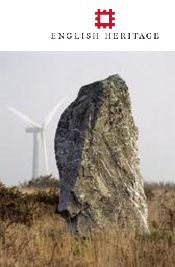
Climate change is one of the most important and urgent problems facing us today. Without action to reduce greenhouse gas emissions, the impacts of a changing climate will have major adverse effects on society, the economy and the environment, including the historic environment.
These impacts will impair future generations’ enjoyment and understanding of their cultural heritage and limit the economic and social contributions it can make to society.
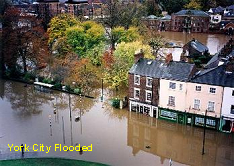 The wide-ranging actions required to limit further damaging emissions,
combined with the need to adapt historic assets to make them more resilient to
a changing climate, will also have significant implications for the historic environment and its future management.
The wide-ranging actions required to limit further damaging emissions,
combined with the need to adapt historic assets to make them more resilient to
a changing climate, will also have significant implications for the historic environment and its future management.
RSPB Climate change
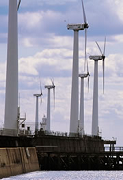
 We work on policies both to reduce the greenhouse gas emissions that cause climate change and to allow wildlife to adapt to the degree of
climate change that will inevitably occur. We also conduct research into thepresent and projected effects of climate change on birds and
other wildlife, both at home and abroad.
We work on policies both to reduce the greenhouse gas emissions that cause climate change and to allow wildlife to adapt to the degree of
climate change that will inevitably occur. We also conduct research into thepresent and projected effects of climate change on birds and
other wildlife, both at home and abroad.
Climate change is caused by emissions from human activities all around the world and so it needs to be tackled on a global scale.
The latest science on climate change makes it very clear that serious harm is likely to occur to both people and wildlife if the
world’s average surface temperature rises to more 2°C above pre-industrial levels.
CLIMATE CHANGE AND MIGRATORY SPECIES
Of the bird species listed on the CMS, 84% face some threat from climate change.
Waterbirds and climate change - Migrant birds in hot water
The world climate is changing as a result of human activities. In Britain, during the 20th Century, annual average temperatures rose by almost 1 ºC. By 2080, temperature is expected to rise by 2 to 3.5ºC and sea-level by between –2 and 86 cm. The fingerprints of climate change are visible throughout the world.
Impacts of climate change on waterbirds
Climate change is a major threat to migratory waterbirds, according to a new report by the British Trust for Ornithology and Wetlands International. Of 235 species of migratory waterbird occurring in Europe and Africa, all except one are experiencing some threat from climate change, and nine species face severe threats that could cause extinction.
 Countryside
Council For Wales: Environmental Change
Countryside
Council For Wales: Environmental Change
Climate Change
The weather changes from hour to hour, day to day. Climate is the average weather within an area over several decades.
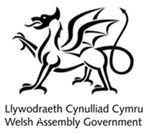 Since the 1970s the climate has changed in a major way. The average annual temperature of the UK rose by 0.5°C during the
20th century, but it's predicted to rise by another 2°C to 3°C, perhaps even as much as 5°C during the 21st century.
Since the 1970s the climate has changed in a major way. The average annual temperature of the UK rose by 0.5°C during the
20th century, but it's predicted to rise by another 2°C to 3°C, perhaps even as much as 5°C during the 21st century.
CCW is a member of the Renewable Energy Deployment: Environmental Issues Project Board, set up by the UK Government to help
the country towards meeting renewable energy targets set out by the EU Renewable Energy Directive. This joint statement has been
issued by the group following the publication of The UK Renewable Energy Strategy 2009, and sets out how it intends to improve
understanding of the impacts of renewable energy developments and ensure timely and consistent consenting decisions.
Statement from members of the Government’s Renewable Energy Deployment Environmental Issues Project Board.
“Tackling climate change is imperative for the protection of our valuable natural environment and will require concerted
action from all levels of society, including government, the private sector and individuals. We – the members of the
Government’s Renewable Energy Deployment: Environmental Issues Project Board – are committed to working together within
the context of our respective statutory obligations, to help address that threat.”
The Renewable Energy Deployment and
Environmental Issues Project Board is comprised of the following members:
Department of Energy and Climate Change
Department for Environment, Food and Rural affairs
Department for Communities and Local Government
Envirnment Agency
Natural England
Joint Nature Conservation Committee
Forestry Commission
Countryside Council for Wales
Scottish Natural Heritage
Centre for Environment, Fisheries and Aquaculture Science
Marine and Fisheries Agency
Scottish Government
Welsh Assembly Government
Northern Ireland Executive
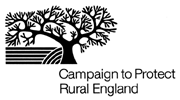 Campaign to Protect Rural England
Campaign to Protect Rural England
Climate change is the most urgent and complex environmental issue we face today.
The impact of both energy generation and use on the countryside and the climate is growing. There are measures the Government can take before pursuing proposals for a new round of nuclear power stations or other options for energy generation. It’s wrong to focus the entire debate on the supply side alone. CPRE believes government should prioritize measures to curb the growth in energy demand, encourage energy efficiency and promote a wide range of renewable technologies.
The National Trust - Climate change: here and now

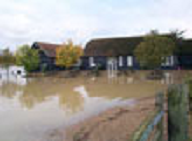 Climate change is one of the world’s greatest challenges. It is also one of the National Trust's biggest challenges.
The impacts of climate change in the UK are increasingly affecting the historic buildings, gardens, countryside and coast in our care.
We are learning how to manage these impacts, such as floods, storm damage and seasonal change. However, in doing this we need the support
of our neighbours, partners, and, importantly, you. The causes of climate change also need urgent action. We are starting to tackle our
greenhouse gas emissions, and using our experience to put pressure on Government.
Climate change is one of the world’s greatest challenges. It is also one of the National Trust's biggest challenges.
The impacts of climate change in the UK are increasingly affecting the historic buildings, gardens, countryside and coast in our care.
We are learning how to manage these impacts, such as floods, storm damage and seasonal change. However, in doing this we need the support
of our neighbours, partners, and, importantly, you. The causes of climate change also need urgent action. We are starting to tackle our
greenhouse gas emissions, and using our experience to put pressure on Government.
Environment Agency - Climate change explained
 Climate change is happening and we must be prepared to adapt to our changing world, as well as taking action to reduce the impacts of climate change.
The extent of likely climate change is starkly illustrated in the latest generation of UK climate projections (UKCP09), released on 18 June 2009.
UKCP09 shows how our climate may change during this century and confirms what we already suspected - that we should expect warmer, wetter winters
and hotter, drier summers with a greater likelihood of extreme weather events such as storms, floods, droughts and a rise in sea levels.
This is not a distant problem. Climate change is already happening. Eleven of the twelve hottest years globally on record were in the last twelve
years and average global temperatures are already approaching one degree Celsius higher than in the pre-industrial age.
Climate change is happening and we must be prepared to adapt to our changing world, as well as taking action to reduce the impacts of climate change.
The extent of likely climate change is starkly illustrated in the latest generation of UK climate projections (UKCP09), released on 18 June 2009.
UKCP09 shows how our climate may change during this century and confirms what we already suspected - that we should expect warmer, wetter winters
and hotter, drier summers with a greater likelihood of extreme weather events such as storms, floods, droughts and a rise in sea levels.
This is not a distant problem. Climate change is already happening. Eleven of the twelve hottest years globally on record were in the last twelve
years and average global temperatures are already approaching one degree Celsius higher than in the pre-industrial age.
 BRITISH TRUST for CONSERVATION
BRITISH TRUST for CONSERVATION
"Our global environment faces many challenges, not least of which is climate change. BTCV continues to develop practical solutions, and encourage people to understand why their project is important in the global context".
THE wildlife TRUSTS
Climate Change and Wildlife Impacts
"The last time the UK’s wildlife faced a challenge on this scale was at the end of the last ice age. We need to find ways to help our wildlife become more resilient to the trials it faces in the 21st century.”
Sir David Attenborough - Vice-President
Climate change is almost certainly the most significant challenge facing nature conservation, with the potential to have significant impacts on the future of UK and global biodiversity.
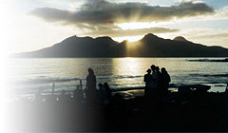 Although wildlife has had to adapt to naturally driven climatic fluctuations in the past, the scale and rate of predicted
change over the next century will place much greater pressures on habitats and species. More importantly, human activities
have broken up the large areas of natural habitat that acted as buffers against change, with intensive agriculture or urban
development now acting as a barrier to movement of wildlife. The small and fragmented habitats that result are more
vulnerable to threats from further land use pressure and the impacts of climate change.
Although wildlife has had to adapt to naturally driven climatic fluctuations in the past, the scale and rate of predicted
change over the next century will place much greater pressures on habitats and species. More importantly, human activities
have broken up the large areas of natural habitat that acted as buffers against change, with intensive agriculture or urban
development now acting as a barrier to movement of wildlife. The small and fragmented habitats that result are more
vulnerable to threats from further land use pressure and the impacts of climate change.
The Ramblers - Climate Change
 The effects of climate change - rising sea levels, changing temperatures and extreme weather conditions threaten the beauty of our countryside and the ability of walkers to enjoy it.
The effects of climate change - rising sea levels, changing temperatures and extreme weather conditions threaten the beauty of our countryside and the ability of walkers to enjoy it.

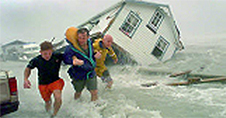
Global
climate change
is the single biggest environmental threat facing the planet.
action is needed
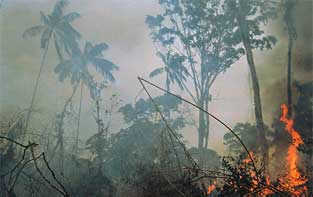 Climate change
Climate change
Floods in Mozambique. Forest fires in Indonesia.
Hurricanes in Florida. Storms in the UK.
Extreme weather events are predicted to become more frequent because of climate change.
 World Wildlife Fund
World Wildlife Fund
Tackling climate change
The continuing growth of greenhouse gas emissions could result in devastating consequences for people and nature.
Addressing climate change is central to the delivery of WWF’s two metagoals on protecting biodiversity and reducing
humanity’s ecological footprint. Unless we stop average global temperatures from rising more than 2°C above the
level recorded in pre-industrial times, we face a high risk of severe and irreversible changes in the planet’s
natural systems. The consequences of changing weather patterns, warming seas and melting ice will be devastating
for people and nature.


Climate change
The world is warming up. Already 150,000 people are dying every year because of climate change and, within 50 years,
one-third of all land-based species could face extinction. If we carry on the way we are now, by 2100 the planet
will likely be hotter than it's been at any point in the past two million years.
But catastrophic climate change isn't inevitable. We know that climate change is caused by burning fossil fuels.
The technologies that could dramatically reduce our dependence on fossil fuels -
decentralised energy
, renewables
and efficiency, hybrid cars, efficient buildings – already exist and have been proven to work. If we start cutting
our emissions now, using these ready-to-go technologies, then there is still a chance to avoid the most catastrophic
impacts of climate change.
What we’re lacking is real action. The government needs to put in place meaningful policies to urgently reduce
emissions – and to act on them immediately. Under New Labour, carbon emissions have risen. The government is
set to miss its own emissions targets.
Whether through political cowardice or industry lobbying, the government is failing to put their words into action.
We're the last generation that can stop this global catastrophe, and we need your help.

Country Guardian does not dispute the connection between levels of carbon dioxide in the atmosphere and the global climate.
No sensible person denies the fact of climate change or indeed the fact that climate is warming at this time.
The conclusion is simple;
we must do all we can now to stop and then reduce the effects of
Global Climate Change.
All the key organisations above agree.




